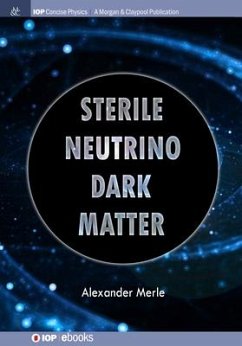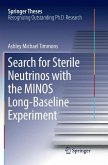This book is a new look at one of the hottest topics in contemporary science, Dark Matter. It is the pioneering text dedicated to sterile neutrinos as candidate particles for Dark Matter, challenging some of the standard assumptions which may be true for some Dark Matter candidates but not for all. So, this can be seen either as an introduction to a specialized topic or an out-of-the-box introduction to the field of Dark Matter in general. No matter if you are a theoretical particle physicist, an observational astronomer, or a ground based experimentalist, no matter if you are a grad student or an active researcher, you can benefit from this text, for a simple reason: a non-standard candidate for Dark Matter can teach you a lot about what we truly know about our standard picture of how the Universe works.
Hinweis: Dieser Artikel kann nur an eine deutsche Lieferadresse ausgeliefert werden.
Hinweis: Dieser Artikel kann nur an eine deutsche Lieferadresse ausgeliefert werden.








